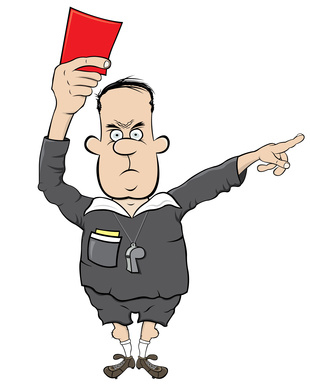IMS Bulletin Editor Dimitris Politis writes:
Refereeing is part of the job description for most of us. Good papers get even better after receiving expert feedback, and mediocre papers are returned to the drawing board. Referees donate their time as part of the review process, and in return have the expectation that their own papers will receive the same favor in the future.
In addition to being scientific experts, referees are expected to be factual, fair, constructive and polite when writing their reports. Nevertheless, many of us have encountered referees who include unwarranted (e.g., personal) remarks, and provide reports that may be blatantly biased or even downright rude. Such incidents are hopefully rare but can be devastating to the morale of the paper’s author, in particular when he or she is a young researcher.
How, and why, can a reviewer be driven to include derogatory comments in a scientific review? One possibility is that they had their own work unfairly (and anonymously) trashed at an early point in their career. It may be that such trauma lays dormant deep inside waiting for an (in)opportune moment to raise its ugly head. In any case, the cycle of abuse must be consciously broken since no one is justified to vent their personal frustrations on unsuspecting victims. At the very least, such abuse can be detrimental to the enthusiasm of researchers (young and old), which is the driving force of science.
Historically, the notion of a (prepublication) peer-review was first implemented in 1665 by Henry Oldenburg, founding editor of the Philosophical Transactions of the Royal Society, probably influenced by ideas of Sir Francis Bacon. However, the first fully peer-reviewed publication may have been the Medical Essays and Observations published by the Royal Society of Edinburgh in 1731. The present-day peer-review system seems to have evolved from this eighteenth-century process; see http://en.wikipedia.org/wiki/Peer_review or http://advan.physiology.org/content/31/2/145.full and the references therein.
Interestingly, with the exception of medicine, peer review has been a touchstone of modern scientific method only since the middle of the twentieth century. For example, Einstein’s revolutionary papers in the 1905 issue of Annalen der Physik were apparently reviewed only by the journal’s editors, Max Planck and Wilhelm Wien—both of whom eventually won Nobel prizes. Of course, with the recent explosion in scientific research productivity, and subsequent proliferation of papers, journal editors could not personally screen all submissions without the help of referees.
In his essay “A World without Referees”, Larry Wasserman presents the viewpoint that our refereeing system is archaic, and should be abandoned in favor of open access venues such as arXiv. The debate on the issue of scientific peer review has also been re-kindled by the prestigious journal Nature; see http://www.nature.com/nature/peerreview/debate. Doing away with the current system may be inevitable at some point in the future. But until we do, it is important that peer review is as fair and unbiased as humanly possible.
Taking the lead in this direction, the IMS Publications Committee recently approved a set of new and updated Principles for Referees, Associate Editors and Editors for the Annals of Statistics. These ethical principles focus on serious issues such as conflict of interest, confidentiality, plagiarism, etc.; a full description is at http://imstat.org/aos/principles.html
But the principles also address the finer points of the reviewing process. In particular, it is explicitly spelled out that all reviewers “are expected to be constructive and polite when writing their reports. Comments must be based solely on the work under review. Defamatory or personal comments must be avoided. Reviewers will be asked to remove unprofessional remarks from their reports.”
Under these wise guidelines, future authors will hopefully be protected from any unwarranted—and anonymous—abuse.

Let’s show rude referees the red card!
1 comment on “Refereeing and psychoanalysis”